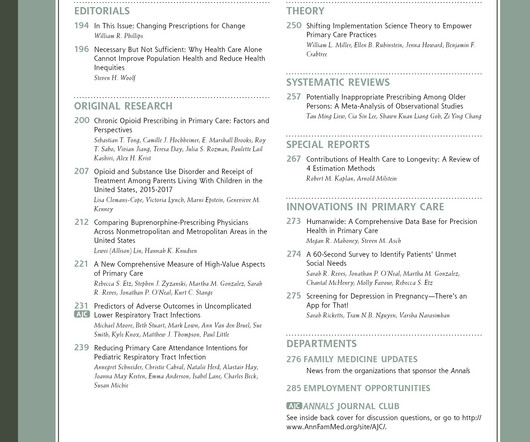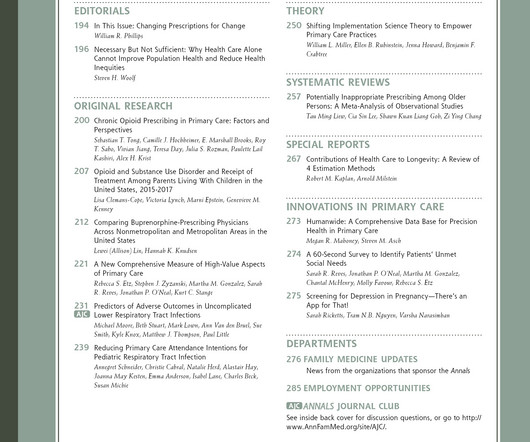Clinician perception of the relationship between mental health, health-related social needs, and diabetes outcomes [Diabetes and endocrine disease]
Annals of Family Medicine
NOVEMBER 20, 2024
Setting or Dataset: Interviews with 21 primary care clinicians in Colorado who treat patients with diabetes. Population Studied: Clinicians across a range of roles and geographic locations, represented 11 different primary care clinics located in both rural and urban areas of Colorado.


























Let's personalize your content